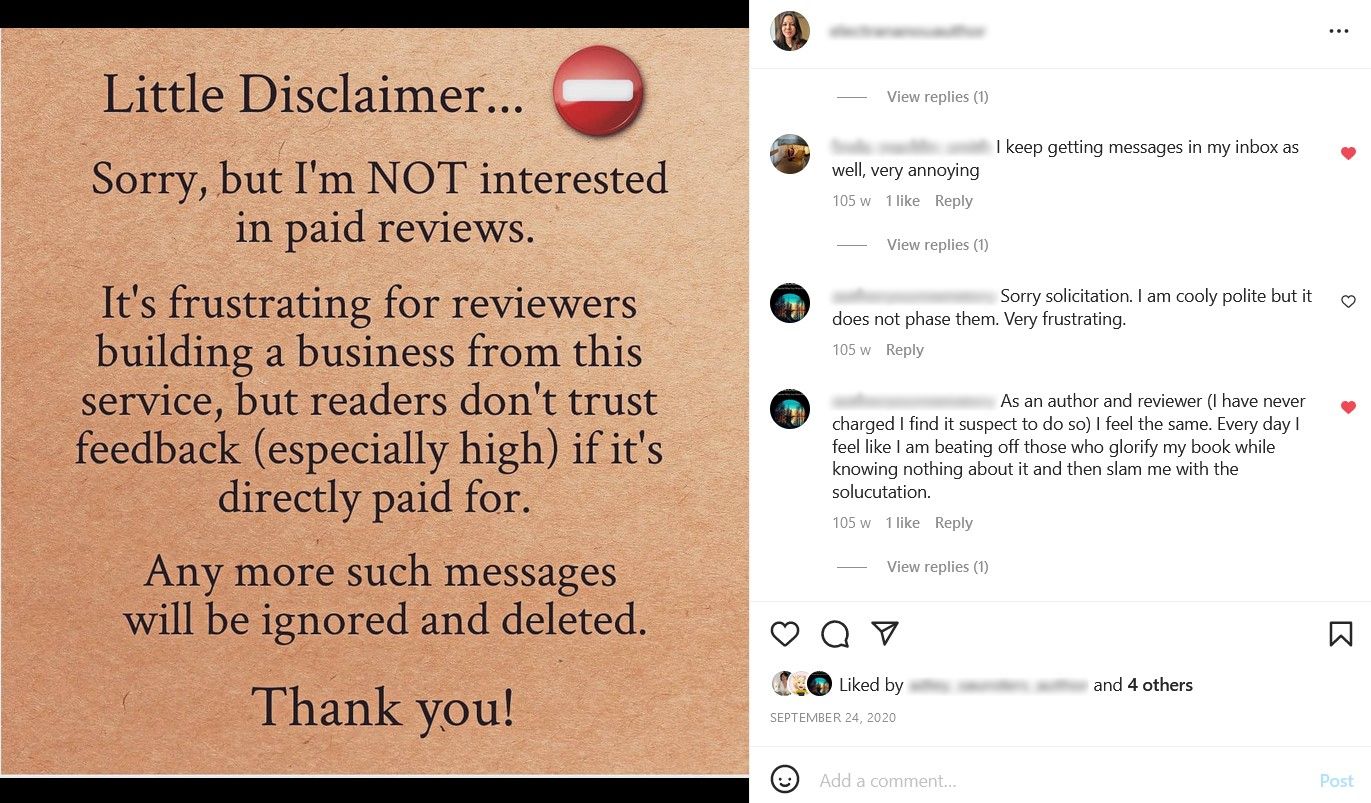How to Get Reviews for Your Book: 5 Helpful Tips
The success of your creative writing career goes hand-in-hand with readers’ reactions to your work, specifically what they say about it and how they rate it. While the quality of your book, story, or poem can garner positive reviews, you can also take steps to collect those all-important reviews.
Here are preparations you should make and strategies you can follow before and after publishing your book.
1. Prepare your book’s presentation, blurb, and synopsis
In order to get reviews, you first need to convince people to read your work. That means you have to come up with a great pitch and blurb, if not a synopsis, as some reviewers might ask.
It helps if you write them beforehand and adjust them if necessary. Browse note-taking apps like Notion and OneNote to find the best one for the job and prepare your blurb and summary.
You must powerfully but succinctly emphasize what makes this book special and why readers should care about it. Think of the key themes, the protagonist, and the popular literature to compare it to.
The blurb and synopsis work well for book review services where you need to grab users’ attention. But how well you know your own work also influences the formulation and effectiveness of your pitches.
The process isn’t much different from cold pitching to professional success. You research target readers to find those who accept your genre and see if they already have instructions on how to submit review requests.
Then come back with a cover letter that includes your pitch and is tailored to capture the interest of each reader.
2. Add a call to action to your book
Another step that can lead to natural reviews for your book is to use its own pages to let readers know how important reviews are and ask them to post their impressions on the best book review sites.
All you need is a few lines encouraging readers to support your book by reviewing it. To draw attention to the message, it’s best to use a blank page at the end or the beginning of the book—or both.
If it’s an ebook, you can even hyperlink the websites you suggest your readers, making it easier for them to quickly jump over and leave their stars and feedback quickly.
3. Contact people and websites for reviews before your book is published
The hardest part of getting reviews for your book is actively reaching out to people. It requires research, social skills, and luck since you can’t predict reviewers’ schedules, which is why it’s a good idea to start researching reviews before you even publish the book.
Assuming your work is great, pre-launch reviews and ratings ensure people will feel more comfortable buying them once they’re available. In addition to faster sales, you can also generate natural reviews faster.
Well, how do you reach book reviewers? As mentioned, look for people within your genre and follow their submission instructions. If they don’t have one because, say, they don’t usually review books but would probably enjoy yours, be extra polite and tactful.
Whether the reviewer is experienced or not, deliver a perfect cover letter that quickly introduces you, entices the potential reviewer with key elements from your book, and solicits their review.
Most importantly, there should be no errors, especially grammatical ones, as they will immediately diminish the reviewer’s confidence in the quality of your book and your skills as an author. If they’re busy, that’s a good reason to deny your request.
As for the manuscript itself, if you want a pre-publication review, it should also be immaculate and require no more than a small round of proofreading before publication. In the latter case, inform the reviewer that it is an uncorrected final draft.
A book that has already been published should not have any defects. However, when the story is fantastic, the odd little flaw here and there is usually forgiven.
Finally, you will have access to platforms such as:
They offer various pre-launch book review services. You make it easier to promote your work by offering early reader copies (ARCs) to people, but you still have to convince them that your book is worthwhile.
Start creating hype around your book well in advance of its release date to ensure you catch the attention of as many people as possible, including some potential reviewers.
Aside from manually searching Google for book review opportunities—that can be publishing professionals, newspaper editors, and even academics—don’t forget social media.
Just using Instagram can boost your writing career, including your review team. But it’s still important to make your book engaging in your posts to convince followers to read it and share their experiences.
If you build a sufficient following, asking for reviews should yield results quickly. You could create an ad calling for reviewers or a simple poster reminding readers that it’s important to leave reviews for their favorite authors.
When creating this post, make sure to include helpful links such as: B. to rate platforms you prefer. Also, use relevant hashtags like #bookreview, #bookblogger, and #readingcommunity. Find out what’s most popular to reach a wider audience.
Publish the content to your network regardless of your intent and strategy. Twitter and Instagram are the most effective for writers, but Facebook and LinkedIn can also be handy.
5. Be careful with paid reviews
Self-publishing has one minefield to watch out for: paid reviews. One reason readers trust great reviewers is that they usually already have a job and don’t need to be paid for their efforts. As such, their opinions on books are unbiased and not based solely on experience.
While reading and rating a book is time-consuming, it is generally frowned upon to pay the reviewer directly to do so, as their opinion may then be biased. Even if it doesn’t, some readers won’t trust a review once they find out you bought it.
Even when it comes to book review services like the ones mentioned above, it’s a good idea to check reviewer rewards and rules, not to mention if and how much you have to pay.
If a platform strongly encourages honest reviews and offers perks to readers in a way that keeps them objective, it’s safe enough to use. You may be able to tip your reviewer at your discretion, a common feature, but it’s less compromising than paying them a reasonable fee.
Another problem to be prepared for when trying to get reviews for your book on social media — especially Instagram — is that paid reviewers with substandard services will bombard you with messages.
They could ban these accounts or try something more diplomatic. For example, create a prominent post stating that you don’t want paid reviews and pin it to your profile. Your inbox should be easier to reach afterwards.
At the end of the day, look for book critics with experience in your genre that are either free or part of a very reliable service. If you have no choice but to reach out to a paid reviewer, research them thoroughly, from their testimonials to their past projects.
Learn all about book reviews
Writing a book is hard, but making it successful can be a nightmare for the unprepared. Explore the publishing industry for tools and tips that can help you predict and navigate your journey, starting with how to get good reviews for your book.
In addition to looking at reliable reviewers, look at what book lovers like to see and use—especially your target audience. Do they prefer simple or extravagant covers, printed or digital books? Design yours accordingly and you’ll be more likely to get natural reviews.

